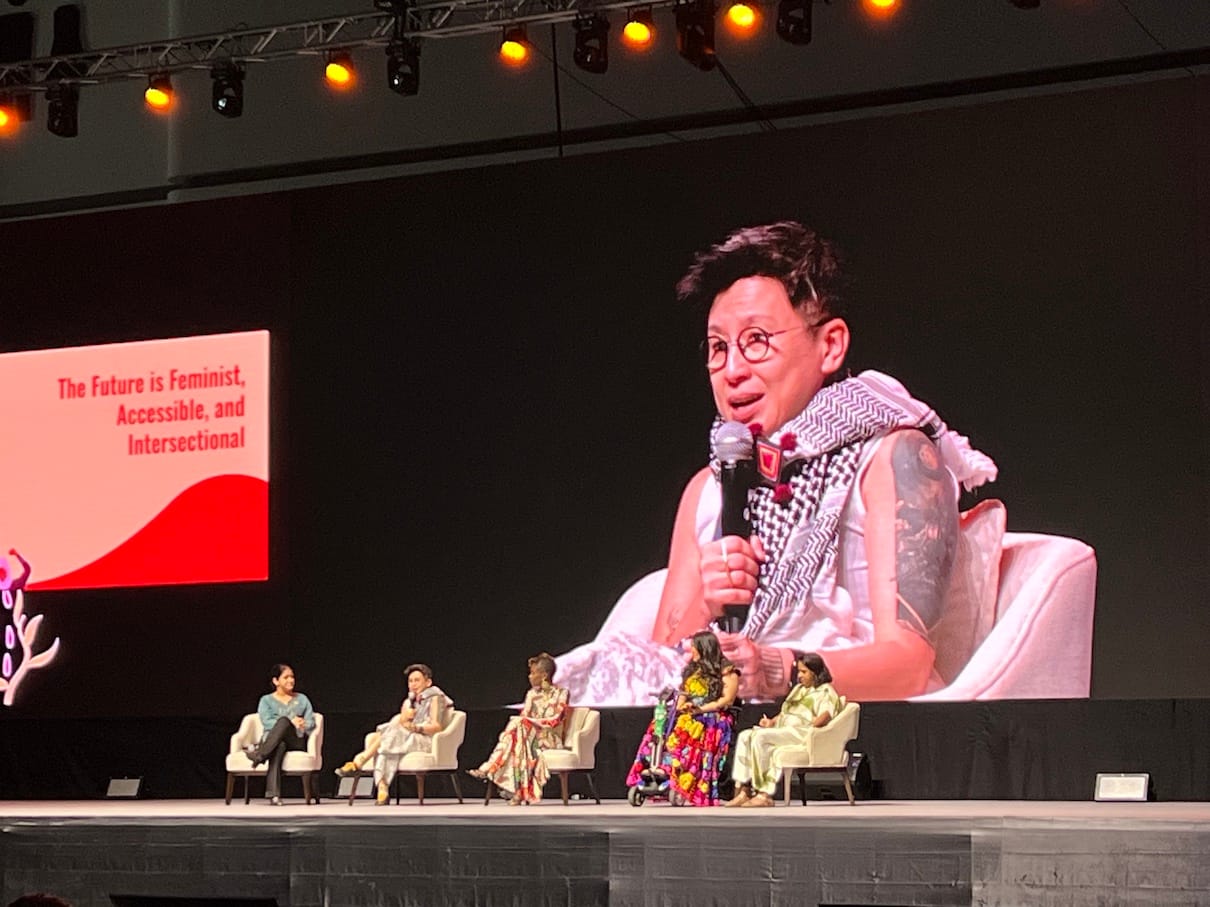Speech by Jac sm Kee at the 15th AWID Forum closing plenary
6th December 2024
The way that technology has been threaded in this forum has been significantly different from all the previous forums I have been a part of. It’s a lot more central, a lot more present, and woven through a lot more conversations.
And I think it is because we have moved away from this idea that technology is neutral, a double edged sword you can wield either way – to critically questioning – who made the master’s tool, that crafted the master’s house of digital colonialism, where 6-10 companies, in 2 countries, own and profit from almost all of the world’s technology platforms, data, hardware and core infrastructures.
Maybe it’s because it has never been more evident our struggles are interconnected, and how digital technology is an underpinning force across our justice struggles. The fact that we are able to witness a genocide and massacre as it is unfolding in Gaza, through social media platforms that have the ability to obscure, hide or erase it from our public archives and material history, by tech corporations that are in complicity with governments in this power to curate, shape and silence.
And where our everyday act tagging and searching for photographs in our devices has powered a technology that is used to create deepfakes in acts of gender-based violence, for racialised policing in many parts of the world, and for militarised surveillence, targeting and occupation of Palestinians, through a device that is powered through minerals extracted in yet another place of violence and genocide that we do not see, in Congo.
In all of this, from end to end, our communities are at the heart of those who are most affected. And because of this, feminists in multiple movements in all parts of the world, are at the forefront of organising, resistance and re-envisioning of the place and impact of technologies on our bodies, territories and imagination.
In the spaces before and throughout the forum there have been deep huddles between feminist tech activists and feminists working on disability justice to think about design and inclusive technologies; between WHRDs and feminist digital safety trainers on crisis preparation and the need to center care, context, and community-centred tech infrastructure for our organising; between LGBTQI activists, artists and digital rights activists on the need to collaborate to counter coordinated anti-gender and anti-rights attacks that is fuelled by technology; between feminists working on macroeconomic policies in Africa, and feminists thinking about platform cooperatives to reimagine decolonial, economic models that can power our movements, and so much more.
So it means we have to find the synapse, the node, the connection, the live tissues between our justice struggles. In the Asia Pacific Feminist Forum, I was talking about how contemporary tech lore is full of fathers – instead lets talk about grandmother technologies, beautifully queer ancestral technologies.
Tech is like this right now because it is constructed through the narrow aperture of six white men -and maybe two Asians. Imagine if it is inhabited, claimed and shaped by in all of our diversities – bodies, peoples, histories, pleasures, rituals, economies, vision, power, imagination.
This means we have to resource this differently. We need to consciously find the intersections of communities, issues and movements that our communities are a part of, and resource this seriously at the intersections. Fund feminist engagement with technology.
In any movement technology is a part of all of our struggles, we use it everyday – in our activism, in how we build and nurture communities, our friendships, loverships and kinships- in how we write and remember living histories, and in how we experience the economy, democracy and violence.
I hope we will walk away from the AWID Forum with a renewed understanding, complicity and conviction, that technology is a critical political site, that we have to meet with all our feminisms in tact, and with all of our collective power.
